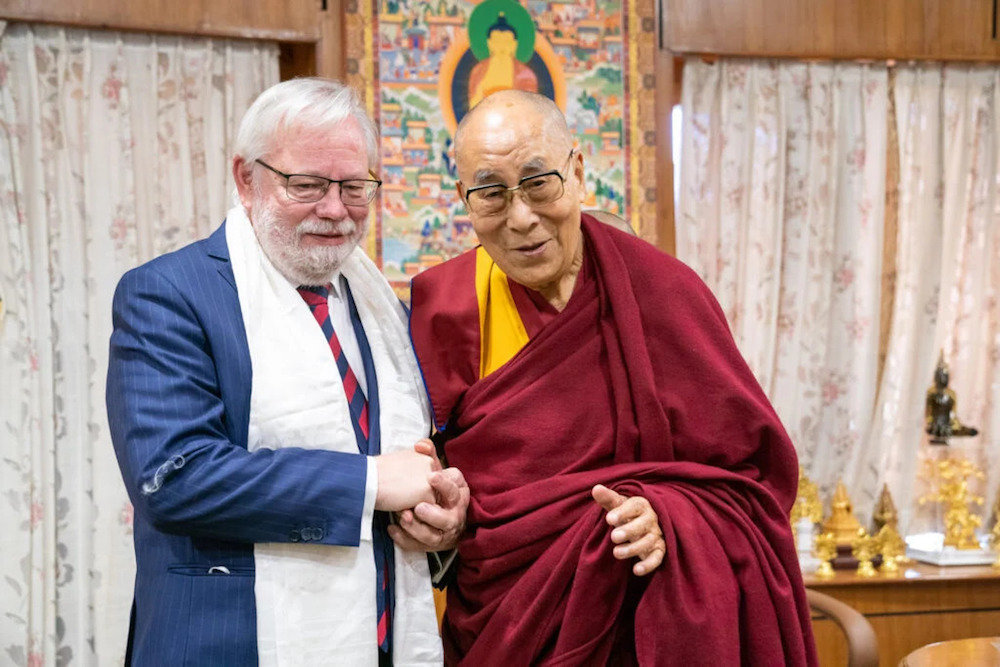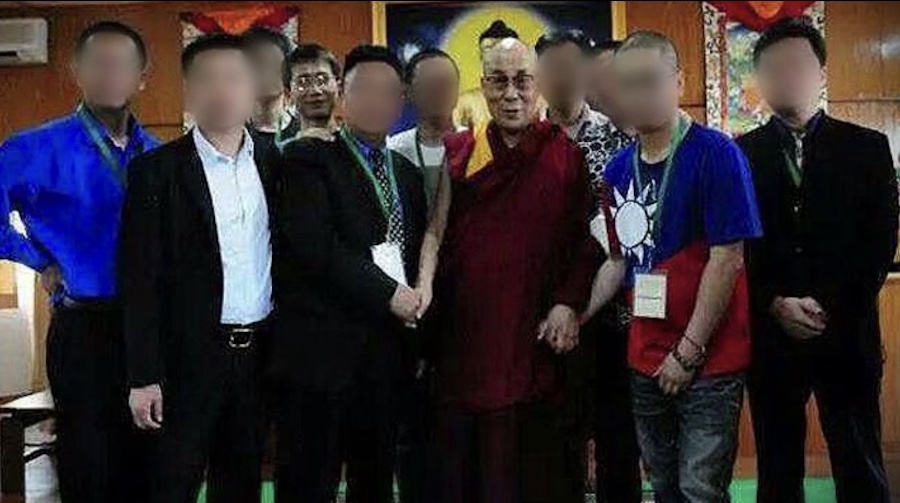By Choekyi Lhamo
DHARAMSHALA, March 11: On the occasion of 63rd Tibetan Uprising Day observed on Thursday, the special guest for the March 10 official ceremony Senate Vice President of the Czech Republic, Jiri Oberfalzer drew parallels with the current Tibetan struggle and the gradual democratization of Czechoslovakia into the present Czech Republic government.
“We have gone through similar historical development so we understand very well the predicament of Tibetans who live under oppression; the loss of free speech and the freedom to govern one’s country due to the suppression. This encourages us to openly express our support for the Tibetan issue,” Vice President Oberfalzer told the press, citing connection between first democratically elected President Václav Havel and exiled leader His Holiness the Dalai Lama.

The leader of the delegation reiterated the Czech government’s continued support to the Tibetan movement, “We have it in our history; we were under the government of the Soviet Union. We were facing invasion by the Soviet Army to Czechoslovakia in 1968 and afterwards, [we also had] the oppression of communist party which was backed up from Moscow. We simply know what it means that you cannot freely express yourselves, that you are prohibited to support your traditions, your positions, historical periods, which were prohibited to talk about.”
The friendship between the Czech Republic and the Tibetans grew when the Dalai Lama first visited the country at the invitation of former President Havel in 2000 and since then, the spiritual leader has visited the country over seven times in the last 16 years; he last visited the country in 2016. The last president of Czechoslovakia and first president of the Czech Republic, Havel was the playwright-cum-politician who led the Velvet Revolution that ended Communist rule in his eastern European nation.
The delegation received a special audience with His Holiness the Dalai Lama at his residence, accompanied by Sikyong Penpa Tsering. Tibet.net report mentioned that the octogenarian leader shed a light on the significance of the 10th March event and subsequently narrated the story of his escape into exile.











One Response
Smaller countries/regions caught between cross hairs of bigger players in a game of geographic GO have to deal with the situation on the ground differently than their bigger benefactors who may have the intent to do good but in fact end up just exploiting. In the reverse, there are those with the intent to exploit, but in the end perhaps do some good unintentionally. It is really interesting how those well paid consultants interact and actually listen to what the local people are saying. Perhaps it’s a certain arrogance in their education that gives them the false sense that they know better than the local people?
In ideological games, one bigger player will try to make another one be the monster when in reality they both probably have some degree of monsterism in what they do. Being a monster can be obvious or insidious–superficially looking like it may be help. If you can not question what you are being told without repercussions that effect you, is that really freedom?
Singapore’s Lee Kwan Yew perhaps captured it best in that ultimately the people have to act in what they want. Outsiders will always have their own agenda. Being alone surrounded by hostile neighbors is also not the best solution.
Decades of globalization has clearly illustrated that those who have the most, want even more. As the covid-19 pandemic and roll out of vaccines has shown, the world in it’s current form has very much a haves and have nots division. The “haves” will try to highlight their altruism, but the real question will be are they doing enough? And then there is the question of what actually allowed them to become “haves” in the first place. Scratching at the surface of these things and making global projections based on it is somewhat lunatic. Past actions of who and what get marginalized should be a wake-up call for all.